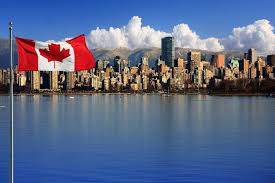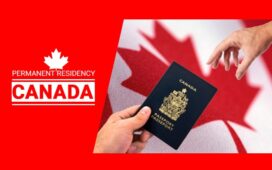Now that you have worked out how to move to Canada, you need to find accommodation in Canada. Putting a roof over your head can be easy and straightforward, but only after you plan and do your research – starting with this housing section.
Rent a house or apartment
If you’re wondering how to rent houses or apartments in Canada, there are several ways to do it: Craigslist, Kijiji, local newspapers, community bulletin boards, social media groups, or even word of mouth. However, most of the time, tenants find their new home online. That said, being careful with the internet is essential as many scammers usually do their job through lists of websites. Remember, if something sounds too good to be true, it probably is. Below you can read more tips to prevent fraud.
Long-term renting can be a good option for ex-pats as there is no firm commitment and sometimes cheaper than buying property.
When it comes to furnished and unfurnished apartments in Canada, keep in mind that many rental properties do not come furnished, so be sure to budget for some household essentials such as furniture, crockery and cutlery, bed linen, and even cleaning supplies.
Rental Process and Rules
Leases in Canada are typically for one year, but can also be for a shorter fixed-term or month-to-month. After one year, the contract can be renewed for another year. These terms are best discussed with the landlord before signing.
Rules on rent increase vary by province. In some provinces, a cap is set by the government and is subject to change every year. Some provinces, such as Alberta, do not have a cap. In Ontario, the cap is currently set to 1.8%. In British Columbia, the limit is 2.5%. If landlords wish to increase more than this, they need to get approval. Rent increases can only occur every twelve months. Landlords must notify their tenants, usually a minimum of 90 days before the change.
Other rules and expectations of landlords are to collect rent, provide you with everything that is outlined in your rental contract, and give you notice before entering your apartment for whatever reason (they may need to do so for things like housekeeping, renovations, or showing your space to potential tenants if you are moving out).
Make sure you become familiar with the law and your rights as a tenant. These vary from province to province.
How to Rent an Apartment
Once you have found a place you like, you can reach out to the landlord and set up a time to view the space. If you like what you see, the landlord will give you an application form for you to fill out and return. Give your landlord at least 48 hours to get back to you. If you are accepted as a tenant, your landlord will send you the lease agreement for you to review. If all is okay, you will sign it, hand over your deposit (read more about this below), and discuss move-in arrangements. On move-in day, you will pay your first month’s rent and be given the keys to your new home.
Requirements and Documents for Renting
Most landlords, before they choose to rent to you, like to make sure that you will be able to pay your rent on time and can afford the space. For this reason, they may ask for:
- Employer letter with salary details
- Bank statements with enough savings to cover some months’ rent
- References from previous landlords
Most apartments and houses for rent in Canada require a security deposit equal to at least half a month’s rent. If you are renting in Canada as a foreigner, keep in mind that some landlords might require a guarantor. This needs to be someone that has Canadian documents.
They may also run a Canadian credit check on you, but if you are a foreigner, you may not have any history in Canada. For this reason, it is smart to also have a credit rating from your home bank handy proving your creditworthiness.
Rental Contract and Deposit
Your rental agreement will typically outline the expectations of you as a tenant and the rules you must follow. A typical lease will also include:
Both the tenant’s and landlord’s name, addresses, and contact information
Duration of the rental term
- Monthly rent amount and due date (typically first of the month)
- Utility bills payment (e.g., heat, water, electricity), if not included in the rent
- Conditions for termination of the rental agreement
- Rental increase information (when a landlord can increase and by how much)




